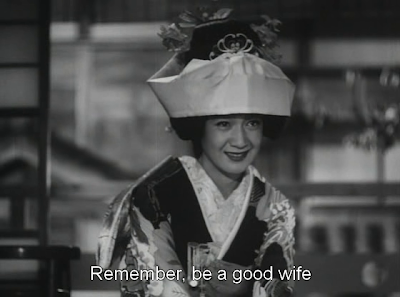I purposefully chose dialogue incongruous with the cinematography above because that's a feeling I often get with Ozu's movies, or doing business with the Japanese. Ozu's films are tender pieces and sensitive experiences to watch. They're atypical of my taste but despite the slow paced, violin laced narrative there's a lot to be learned about Japanese life from them.
Historically they're set in post war Japan which though not mentioned obtusely has cinematic gestures now and again. There's the collision of old and new society, the ease with drinking tea on the floor or eating cake at the table. It was a country in swift transition and one that did a tremendous job of coming back from the abyss despite the unambiguous victory and immediate attempts of cultural colonisation by the U.S army.
Even today not many Americans know that Pearl Harbour was provoked and set up to bring the U.S. into the war without being seen to precipitate the action. There's much about the Japanese that can be frustrating but they've managed to keep their essence as a culture in spite of ultimately being on the recipient end of the only atomic attacks any country has received. They're an unusually hermetically sealed race in many respects with most Japanese having no contact with outside cultures apart from vacations. The rest of the year it's pure or 99% Japanese contact especially outside Tokyo.
Ozu shoots his movies at ground floor level as if sitting on a tatami mat. The camera is fixed and rarely pans with typically long scenes of dialogue interspersed with silence. The father daughter relationship is revisited in this film from the previous movie Tokyo Story in which Norika's mother passes away after the family vacation. It's a strange kind of framework with old and new world's merging, and in this movie a tension over each party wishing to do the best for each other when in fact they are both happier with each other. When I listen to Noriko talk, I'd suggest his daughter is uninterested in men and likely more interested in women but unable to explore or live her sexual preference. This makes the movie even more melancholic but it's well choreographed punctuated-misery in that stoic Japanese and honourable way. It's about sacrifice I guess.
When I watch Ozu movies I see hundreds of centuries including one from the future condensed into a couple of hours. The tradition, the healing of post war Japan, the clash of traditional attire with the Westernisation of dress, the hints at Japanese futurism and a pragmatism mixed with respect for delicate but pointed ways of doing everything from formal introductions to stating one's Saki limit in advance. They make me sad and they make me admire the Japanese at the same time. I think the world may have been given a more elegant kind of brutality to live in had the atom not been split and the vulgarity of overwhelming fire power dominated the rest of the century. I think nature would have been respected so much more, and that corporatism wouldn't be the unmuzzled rabid dog it is today. I doubt the Chinese would agree with me but then Communism was an experiment they suffered under considerably more than the rape of Nanking and nobody talks about that too much in the People's Republic.






